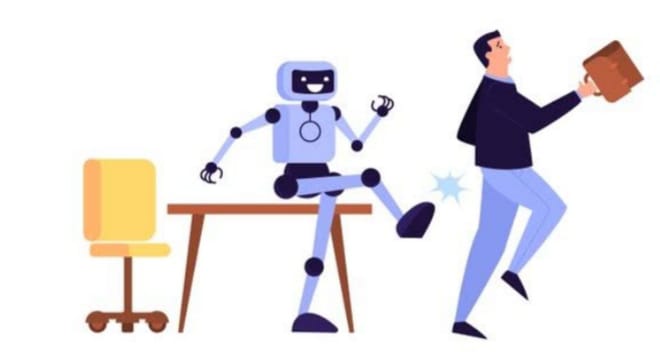The revolution of Artificial Intelligence is raising concerns about its potential impact on human jobs. During the Industrial Revolution, where machines replaced some jobs but created new opportunities, the article highlights the potential impact of AI on various job positions.
As AI continues to advance, it becomes crucial for individuals to assess their roles and stay informed about technological trends to navigate the changing job landscape successfully. In the midst of the ongoing debates about the efficiency and capacity of Artificial Intelligence to replace human workers, a recent report by McKinsey Global Institute on “Generative AI and the Future of Work in America” and spotlighted the jobs that has high risk of automation in the United States and also suggested that AI technology could potentially replace jobs that involve data collection and repetitive tasks. Sectors such as office support, customer service and food service employment will be particularly affected by this AI transformation.
According to the report, AI has the potential to significantly accelerate economic automation, and by 2030, it might account for 30% of the total hours worked in the US economy. The report suggests that the US may need to undergo around 12 million occupational transitions by 2030 due to these changes. “There will be a significant transformation in employment opportunities across industries, leading workers to seek new jobs”, the report said.
The report highlights an estimation of job reductions for 1.6 million clerks, 830,000 retail salespersons, 710,000 administrative assistants and 630,000 cashiers that involve repetitive tasks which can be efficiently handled by automated systems.
As per the report, the upcoming changes in the job market will compel job seekers to explore different employment sectors. Approximately 11.8 million workers currently in occupations with decreasing demand may need to transition into new lines of work by 2030. Moreover, the report emphasises that low-wage workers will face more significant impacts from these expected job shifts caused by AI. Individuals earning less than $30,800 a year, as well as those earning between $30,800 and $38,200 a year, are projected to be up to 10 and 14 times more likely to require occupational changes by the end of this decade compared to higher earners.This aligns with the belief shared by other experts that staying updated with technological trends is crucial for survival in the job market. Additionally, upskilling will play a vital role in enabling the coexistence of humans and AI.

